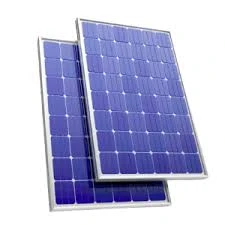Understanding the Cost Factors of Hybrid Inverters for Your Renewable Energy System
Understanding Hybrid Inverter Prices A Comprehensive Overview
In the rapidly evolving world of renewable energy technology, hybrid inverters are carving out a niche as vital components for residential and commercial energy systems. These advanced devices combine the functionality of traditional inverters with the capacity for battery storage, enabling users to effectively manage energy consumption, harness solar power, and integrate various energy sources. As their popularity grows, a key question arises what factors influence hybrid inverter prices, and what should consumers expect when investing in this technology?
1. Types of Hybrid Inverters
Hybrid inverters are designed to operate with both solar photovoltaic (PV) systems and energy storage solutions, such as batteries. There are several types of hybrid inverters on the market, including those that support grid-tied systems, off-grid configurations, and those that can operate independently of the grid. Prices can vary widely among these different categories due to their distinct features and capabilities. For instance, a hybrid inverter designed for off-grid use may come at a premium due to its advanced functionalities required for energy independence.
2. Capacity and Power Rating
The price of a hybrid inverter is significantly influenced by its capacity and power rating, usually measured in kilowatts (kW). Higher capacity inverters can support larger solar arrays and more substantial energy demands, thus coming at a higher cost. For residential use, typical hybrid inverters range from 3 kW to 10 kW, catering to different household sizes and energy consumption patterns. Therefore, evaluating your energy needs is crucial, as selecting a more powerful inverter than necessary can lead to overspending.
3. Features and Technology
hybrid inverter price

Hybrid inverters come with various features that can affect their pricing. Advanced models often include functionalities such as smart monitoring, load shifting, and automated energy management, enabling users to optimize their energy usage and minimize costs. Devices that offer compatibility with various battery types (like lithium-ion and lead-acid) and include built-in grid management features may also command higher prices. As technology evolves, innovations in efficiency and performance can justify the price differences between basic and advanced hybrid inverters.
4. Brand Reputation and Warranty
Reputable brands with a proven track record in quality and customer service often price their hybrid inverters higher due to the reliability and durability associated with their products. Well-regarded brands may provide extended warranties, which can be an indicator of trust in their products and further justify the price premium. When investing in a hybrid inverter, considering brand reputation and warranty options can lead to a better long-term investment.
5. Installation and Additional Costs
It’s essential to remember that the price of the hybrid inverter itself is only part of the total investment. Installation costs can vary depending on your location, the complexity of the system, and the rates charged by professional installers. Additionally, potential costs for permits, inspection fees, and supplementary hardware (like mounting equipment or wiring) should also be considered. Overall, prospective buyers should budget not just for the inverter but for the entire system to avoid unpleasant surprises.
Conclusion
The price of hybrid inverters is influenced by a variety of factors, including type, capacity, features, brand, and installation costs. As the demand for renewable energy solutions continues to rise, understanding these elements can help consumers make informed decisions. By carefully evaluating their energy needs and budget, homeowners and businesses alike can find a hybrid inverter that not only meets their requirements but also contributes to a more sustainable future. Investing in a hybrid inverter can offer not just savings on energy bills, but also peace of mind in an increasingly uncertain energy landscape.
-
String Solar Inverter: The High-Efficiency Solution for Smart Solar EnergyNewsJul.14,2025
-
Revolutionizing Rooftop Energy with the Power of the Micro Solar InverterNewsJul.14,2025
-
Power Independence with Smart Off Grid Solar Inverter SolutionsNewsJul.14,2025
-
On Grid Solar Inverter: Powering the Future with Smart Grid IntegrationNewsJul.14,2025
-
Monocrystalline Solar Panels: High-Efficiency Power for the Future of Clean EnergyNewsJul.14,2025
-
Bifacial Solar Panel: A Smarter Investment for Next-Generation Energy SystemsNewsJul.14,2025







